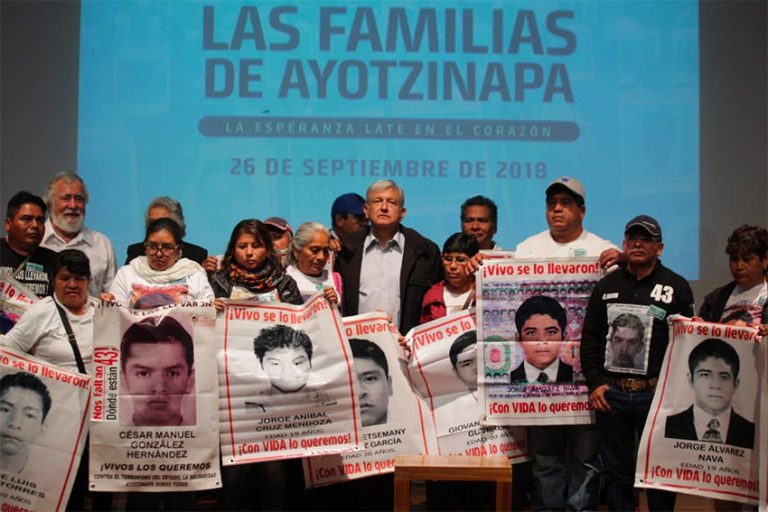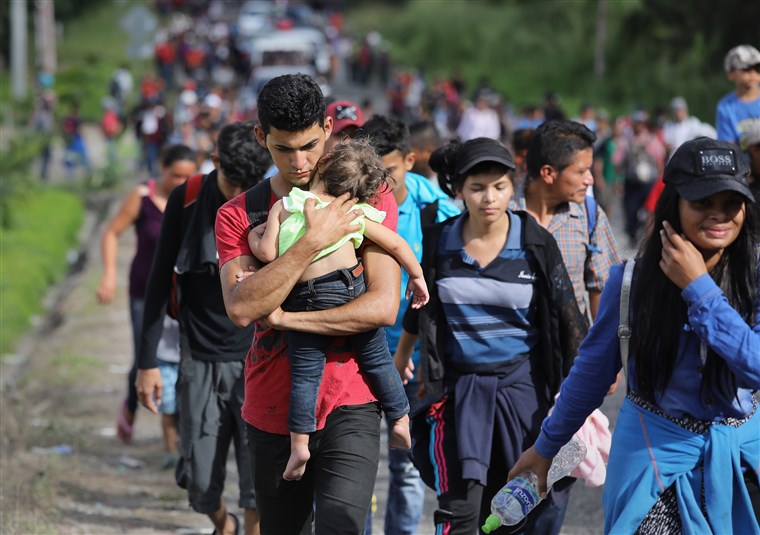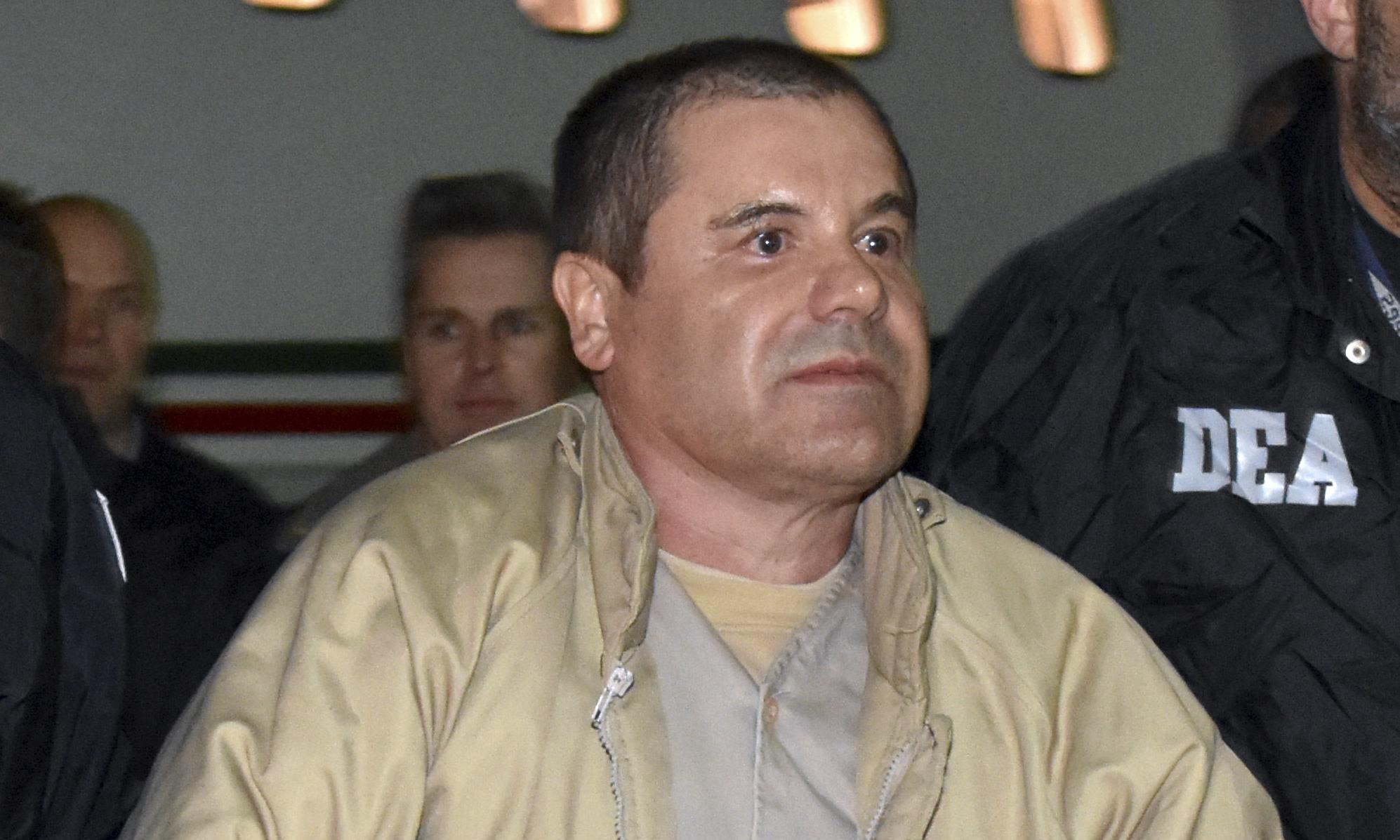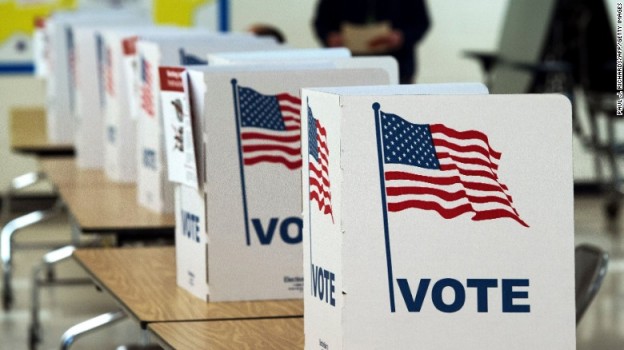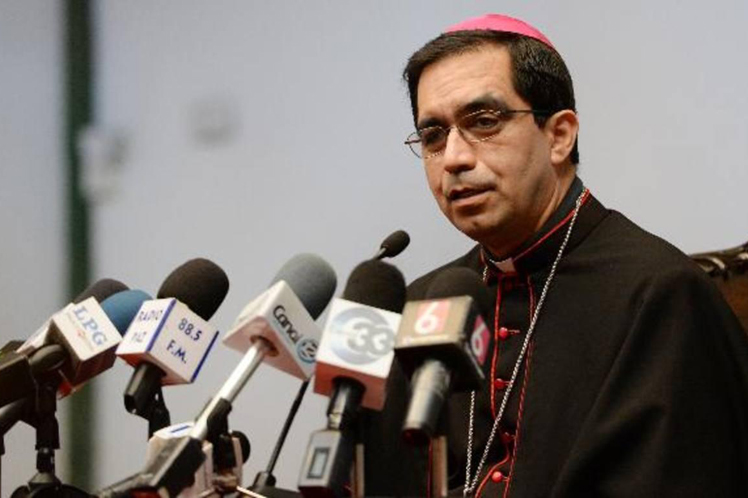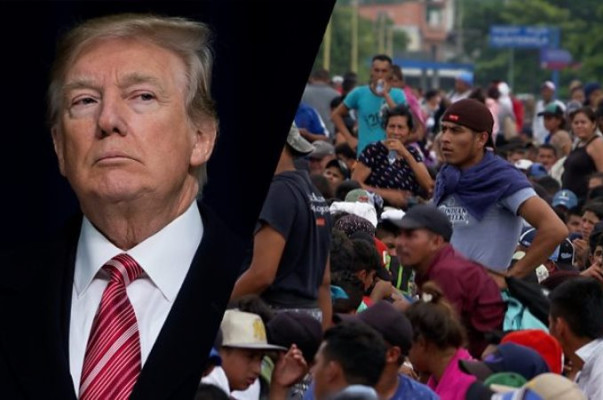Probe will examine roles of army and Federal Police in the night of violence in Iguala, Guerrero, in 2014
by Mexico News Daily
Mexico’s new government will investigate “everyone” involved in the disappearance of 43 teaching students four years ago today in Iguala, Guerrero.
President-elect Andrés Manuel López Obrador met today with the families of the students from the Ayotzinapa Rural Teachers’ College and assured them that the truth will come out through an investigation that will go as far as to examine the roles of the army and the Federal Police.
The current federal government claims that corrupt municipal officials turned the students over to a criminal gang that killed them and incinerated their bodies.
At a press conference after their two-hour meeting, López Obrador said it was agreed that judicial authorities be called on to reaffirm a court order to implement a truth commission, a move the current government has resisted.
If a commission has not been established by December 1, when the president-elect takes office, he will create one by decree, López Obrador vowed.
The government’s investigation into the case has been widely criticized by international experts, human rights organizations, Mexican journalists and the students’ families. Many people suspect that the army may have played a role in the students’ disappearance.
In June, a federal court ordered the creation of a truth and justice commission to undertake a new investigation, ruling that the one carried out by the federal Attorney General’s office (PGR) “was not prompt, effective, independent or impartial.”
However, the government has launched legal action against the court’s order to create the commission, arguing that it is impossible to do so.
There is “a real, legal and material impossibility” to create the commission, the PGR said in June.
Alejandro Encinas, who will be an Interior Secretariat human rights undersecretary in the new government, offered his own pledge yesterday that a truth commission will be created.
“If the current government doesn’t comply [with the court order], we will implement it. It’s a matter of political will and an act of justice,” he said in a radio interview.
Meanwhile, current students of the Ayotzinapa college attacked military installations in Chilpancingo, Guerrero, yesterday as they renewed protests against the authorities’ failure to solve the case.
The students arrived in the state capital at around 5:00pm and participated in a march and rally before making their way to the army barracks where they threw Molotov cocktails, fireworks and stones that damaged the building’s façade.
The attack lasted less than 10 minutes before the students boarded buses and left, according to the newspaper Reforma.
Parents of the 43 students will take part in a march in Mexico City today with students and members of social and human rights organizations.
The father of one of the missing students said yesterday that he saw “a little hope” that the case will be solved during López Obrador’s presidency.
“Yes, there is a little hope with this government, there’s a new power, we’re going to raise everything . . .” Maximino Hernández told the television program La Nota Dura.
Vidulfo Rosales, a lawyer for the disappeared students’ parents, said the incoming administration has a chance to right the wrongs of the current government.
“The government of Andrés Manuel López Obrador has the opportunity to give results in a very concrete way . . . [The case] could serve as an element that helps to resolve other cases of disappeared people,” he said.
The notorious Ayotzinapa-Iguala case and its subsequent investigation is considered by many as the biggest failure of the current administration of President Enrique Peña Nieto. But the president said last month that he stands by the “historical truth” declared by investigators.
According to the official version of events, the students’ bodies were burned in the Cocula municipal dump before their remains were disposed of in a nearby river. Then attorney general Jesús Murillo Karam declared in early 2015 that the investigation had produced the “historical truth,” a phrase that has been widely ridiculed since by critics of the probe.
Earlier this year, the United Nations released a report that said that 34 people were tortured in connection with the investigation and that suspects had been arbitrarily detained.
The National Human Rights Commission (CNDH) also said in June that it has “undoubted evidence” that one man was wrongfully arrested in connection with the crime in a case of mistaken identity.
Source: Reforma (sp), El Financiero (sp)
In other news in Mexico:
No plastic straws will be allowed in Querétaro by next March
Restaurants say use of straws is down 95 percent
The municipal council of Querétaro agreed yesterday to start phasing out the free distribution of plastic straws in restaurants.
Acting mayor Enrique Correa Sada explained that the technical aspects of the new regulations have yet to be worked out, and that a full prohibition won’t go into effect until March.
In the interim, the municipality will launch an information campaign about the new regulation, and give restaurateurs time to exhaust their supplies of straws.
The president of the Querétaro chapter of the restaurant industry association Canirac told the newspaper Milenio that its 185 members have reduced their plastic straw use by 95% over the last six months.
Current practice is only to provide a straw when a customer asks for one, said Sergio Salmón Franz.
He also said he supports the idea of biodegradable straws, but their use is up to each restaurateur.
The decision by council to phase out straws comes after its August decision to restrict the use of plastic bags.
Source: Milenio (sp).

